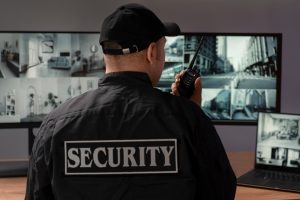 Children and youth critical support and residential security are of utmost importance when it comes to ensuring the safety and well-being of these extremely vulnerable individuals in our society. The right security personnel are crucial in providing a secure environment that supports the critical care required for children and youth in residential facilities.
Children and youth critical support and residential security are of utmost importance when it comes to ensuring the safety and well-being of these extremely vulnerable individuals in our society. The right security personnel are crucial in providing a secure environment that supports the critical care required for children and youth in residential facilities.
Residential facilities for children and youth serve as temporary or long-term homes for those who may have experienced trauma, neglect, or other difficult circumstances. These facilities aim to provide a safe and nurturing environment that promotes healing, growth, and development. However, the vulnerability of the individuals residing in these facilities necessitates the presence of highly coordinated and robust security measures to protect them from everyday potential dangers.
The responsibilities of security personnel in children and youth residential facilities extend far beyond traditional security duties in many ways. They play a vital role in maintaining a secure and supportive environment that allows these young people to heal, learn, and thrive. One of their primary security obligations is to ensure the physical safety of these young residents. This includes monitoring access control to the facility, regular patrols, and responding appropriately to any security breaches, emergencies, hazards, or unwanted activity.
In addition to physical security, guard personnel are responsible for creating and maintaining an emotional and psychological sense of security for the children and youth in their care. They must be trained to recognize signs of distress or potential harm and respond appropriately. This may involve de-escalating conflicts, providing emotional support, or engaging in crisis management techniques. By cultivating a safe and trusting environment, your security guard team contributes to the overall well-being and mental health of the residents.
Another crucial responsibility of security guard personnel is to implement and enforce protocols and procedures that safeguard the children and youth. This includes ensuring compliance with regulations and guidelines set forth by regulatory bodies or governing agencies. Security personnel should be aware of these regulations, as well as any unique facility protocols. The best security staff become part of the overall team and collaborate with other staff members to develop and refine security and emergency preparedness strategies.
Furthermore, security personnel in children and youth residential facilities must be trained in child protection, transport, and safeguarding practices. Security Officers must be specifically trained and certified to meet County, State, and Federal compliance standards. They should be aware of the signs of abuse, neglect, or exploitation and be prepared to document and report any observations or suspicions to the appropriate authorities. By being vigilant and proactive, security personnel can contribute to the prevention and early detection of potential harm, further enhancing the safety and well-being of young residents.
Lastly, best-fit security personnel should strive to build positive relationships with the children and youth they are responsible for protecting. By fostering trust and establishing rapport, security personnel can create an environment where residents feel comfortable approaching them with concerns or seeking help. This relational aspect of their role can significantly impact the emotional security and overall experience of the children and youth in residential care.
In conclusion, children and youth residential security is a multifaceted responsibility that goes far beyond traditional security duties. Security personnel play a vital role in ensuring the physical, emotional, and psychological safety of the residents. Their responsibilities encompass maintaining a secure environment, implementing protocols and procedures, recognizing signs of distress, collaborating with other staff members, and building positive relationships with the residents. By approaching each client with professionalism, diligence, and compassion, security personnel contribute to the critical support, care and overall well-being of children and youth in residential facilities.


